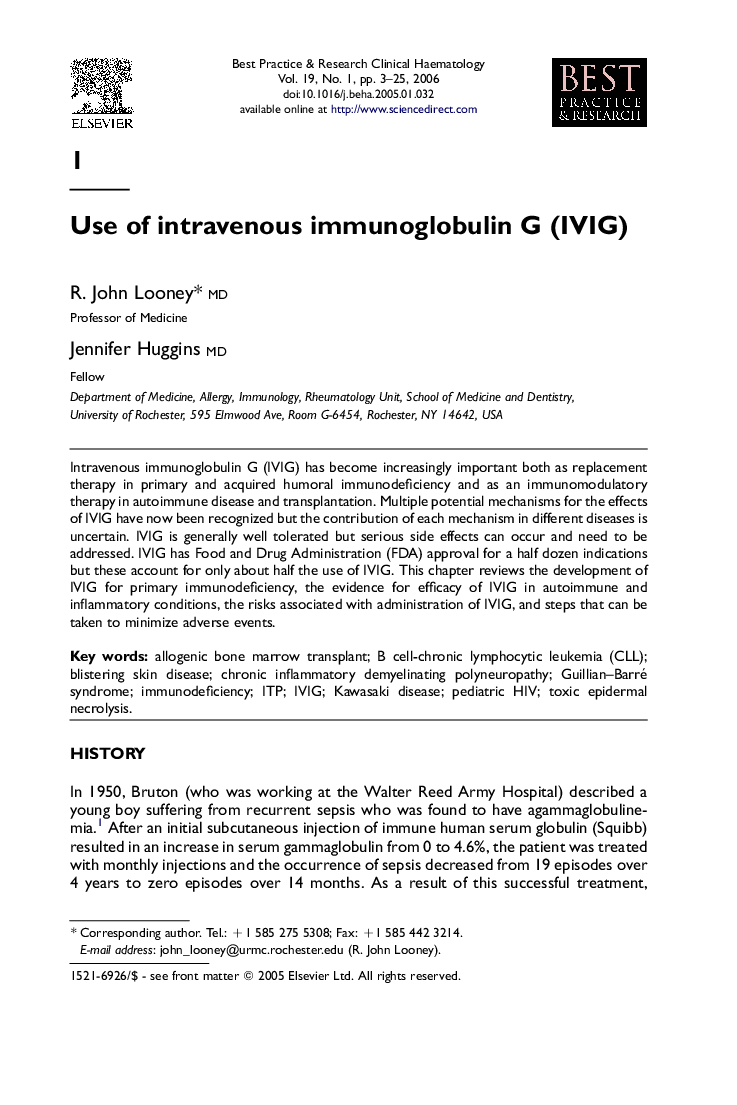| Article ID | Journal | Published Year | Pages | File Type |
|---|---|---|---|---|
| 2100617 | Best Practice & Research Clinical Haematology | 2006 | 23 Pages |
Intravenous immunoglobulin G (IVIG) has become increasingly important both as replacement therapy in primary and acquired humoral immunodeficiency and as an immunomodulatory therapy in autoimmune disease and transplantation. Multiple potential mechanisms for the effects of IVIG have now been recognized but the contribution of each mechanism in different diseases is uncertain. IVIG is generally well tolerated but serious side effects can occur and need to be addressed. IVIG has Food and Drug Administration (FDA) approval for a half dozen indications but these account for only about half the use of IVIG. This chapter reviews the development of IVIG for primary immunodeficiency, the evidence for efficacy of IVIG in autoimmune and inflammatory conditions, the risks associated with administration of IVIG, and steps that can be taken to minimize adverse events.
